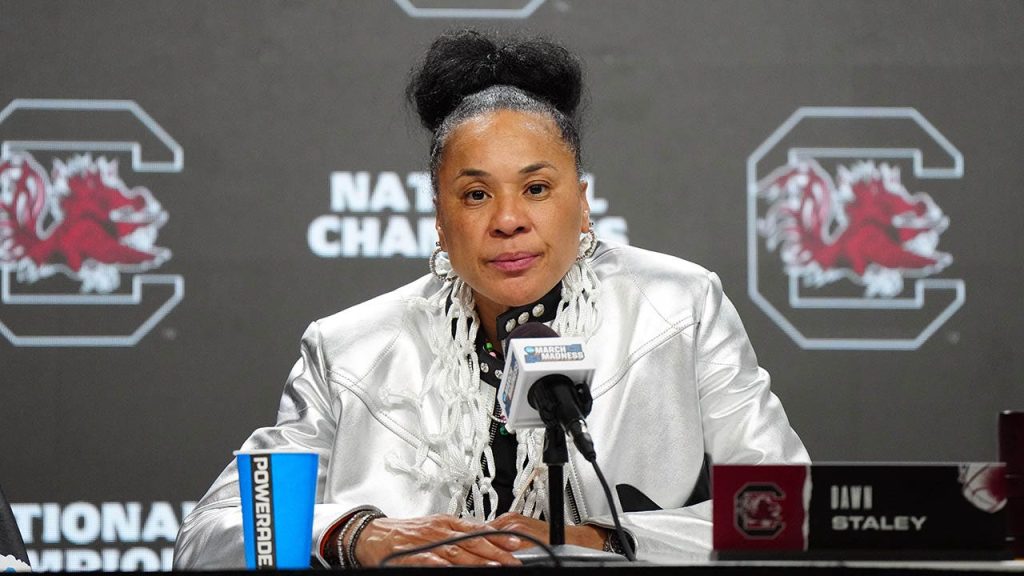South Carolina coach Dawn Staley recently made headlines for her support of transgender athletes in women’s sports ahead of the Gamecocks’ national championship win over Iowa. OutKick writer Dan Zaksheske criticized Staley’s stance on transgender athletes, suggesting that she may have been influenced by the media’s positive coverage of her. Zaksheske questioned whether Staley truly believed in allowing transgender women to participate in women’s college basketball, given her religious beliefs and long tenure in the sport.
Staley’s controversial comments came during a press conference before the national championship game, where she expressed her belief that transgender women should be allowed to compete in women’s sports. Despite the potential backlash from critics, Staley stood by her opinion, stating that she was prepared for the negative reactions that might arise from her stance. Her remarks sparked a heated debate on social media, with some applauding her support for inclusion and others condemning her position on the issue.
Zaksheske’s criticism of Staley’s comments raised questions about the role of media coverage in shaping public figures’ opinions on controversial topics like transgender inclusion in sports. He suggested that Staley may have felt pressured to conform to the expectations of the media and her supporters, leading her to express a viewpoint that may not align with her personal beliefs. The debate surrounding Staley’s statements highlights the ongoing discussion about the rights of transgender athletes to participate in sports according to their gender identity.
Staley’s endorsement of transgender athletes in women’s sports reflects a broader conversation within the realm of collegiate athletics regarding inclusivity and gender diversity. While some have praised her for advocating for equality and representation in sports, others have criticized her for potentially undermining the integrity of women’s sports by allowing transgender women to compete against cisgender female athletes. The controversy surrounding Staley’s comments underscores the complex and contentious nature of discussions surrounding transgender rights and participation in athletics.
As the debate over transgender inclusion in sports continues to evolve, Staley’s support for transgender athletes has prompted reflection and dialogue among fans, athletes, and sports commentators. While some may disagree with her stance, others see her advocacy as a positive step towards promoting diversity and inclusion in women’s sports. The ongoing conversation sparked by Staley’s comments reinforces the need for open and respectful discourse on issues of gender identity and representation in the world of collegiate athletics. Despite the controversy surrounding her statements, Staley’s unwavering support for transgender athletes serves as a reminder of the importance of standing up for inclusivity and equality in sports.


